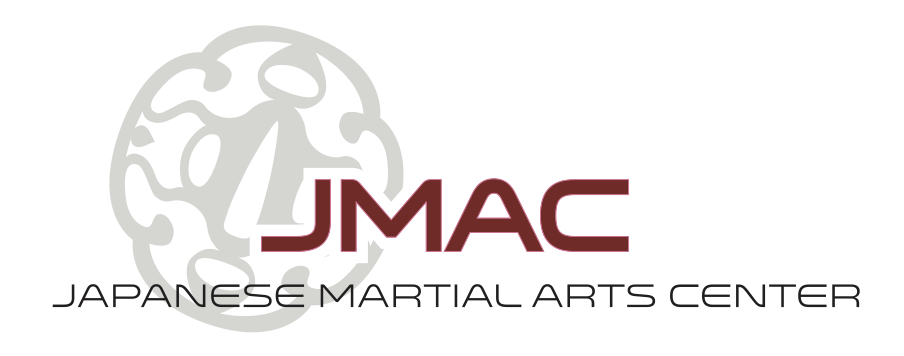This is a wonderful admonishment to martial arts students of every variety: kendo, karatedo, aikido, or any-do. It helps to remind us of two of the most important virtues found in budo.
Perhaps the more obvious virtue is courage. It takes courage to face a strong punch, kick, or throw, whether in the dojo or in self-defense. Of course, the real courage we are trying to exhibit is the courage to do the right thing, even when it is scary or unpopular. It can be much harder to calm an angry person or coach a misguided teenager than to block a front kick, but as martial artists it is our responsibility to do the right things, even when they are difficult.
It may be less obvious that martial artists should be loving, but truly, without love we cannot live well in the world. In the dojo, love can take the form of the kindness shown by the teacher to his students, or the bond that develops between training partners. Kindness between those who practice fighting arts is critical to the success of any traditional martial arts school.
This is an excellent question with which to evaluate any training session: "Have I loved enough, have I shown enough courage?"
The Japanese Martial Arts Center would like to thank the many Ann Arbor businesses that support this blog, both martial arts-related and others, including: Network Services Group, Art of Japanese Swordsmanship, Shudokan Martial Arts Association, Budo Mind and Body, Art of Judo, Iaido Dot Com, Lorandos and Associates, Oxford Companies, Bluestone Realty Advisors, Portfolio Ann Arbor, Invest Ann Arbor, the Law Office of Nicklaus Suino and the ITAMA Dojo.

6 comments:
Long term diligent training provides many benefits. For most people, at the start the ego is big and the skill is little. Over time, the pendulum swings and the ego shrinks, and the skill begins to grow. Eventually you will have enough confidence in yourself and in your technique that you will realize that it is better to avoid physical confrontation where ever possible. That shows a love of life, faith in your training, and the courage to do the right thing.
It’s hard sometimes to be told you are doing a technique wrong but if your Sensei or training partners did not truly care about your development why would they bother to try and help you out? Accepting and admitting there are things you need to work on you show courage and hopefully you can take that same courage learned in the dojo and apply it to other areas of your life.
Compassion is an expression of love; a respect, understanding and sensitivity for the relative proficiencies demonstrated by others. As such this expression of love is what is found inside the dojo during training especially from more senior practitioners as shown to the newer ones. This is visible in the patience exhibited by seniors when correcting and encouraging proper form in techniques with new practitioners. I know we are all eager to show our proficiencies in techniques but as beginners we must resist the tendencies to dismiss or discount the guidance from our seniors; this is help provided out of love and nothing else. New training partners must develop and show that same sense of respect, understanding and sensitivity to their seniors and their training needs. I am more and more realizing the importance that the uke plays in the learning process. We must also work hard to be compassionate and be the good uke in order to provide an appropriate level of competence as a training partner to our seniors.
Love in the context of the martial arts to me (among other things) is about compassion, sensitivy and emotional awareness.
Courage takes on many forms, but one of them is the courage to show compassion and humility to the people around you even when you are afraid to appear weak.
This requires compassion, courage and emotional awareness.
Awareness is a key skill in our success in more than just the martial arts; it's important for every facet of our lives. For most of us, the first thing that comes to mind when talking about awareness is awareness of our physical environment; however, the successful martial artist is also emotionally aware. Emotional intelligence and sensitivity are part of this; without them, disagreements are more apt to end in conflict than in growth.
I feel that this question is such a great thing to ask yourself at the end of any day, however it is especially appropriate for martial arts training. I read an interesting story about Miyamoto Musashi, in which he was meditating with his life long friend and mentor, Soho Takuan. Musashi noticed a snake approaching the clearing, and he began to channel his spirit in hopes to protect him and his friend from the venomous snake, as he knew the slightest move could cause the snake to strike. As Takuan noticed the snake he smiled, and sat still as the snack slithered across his legs. When it reached Musashi, it recoiled and retreated into the bushes. Musashi was full of sorrow, for although he had the physical presence and strength, he did not have the same serenity and love that Takuan glowed with and as such, the snake feared him. He had courage, but had yet to learn of love. This is why we must strive to exude both love and courage, we must have the courage to face a challenge, but the love to face that challenge with and open mind and an open heart.
Post a Comment